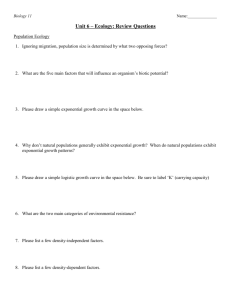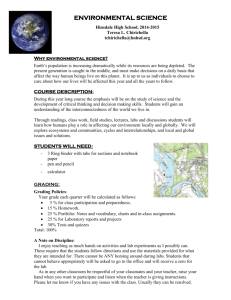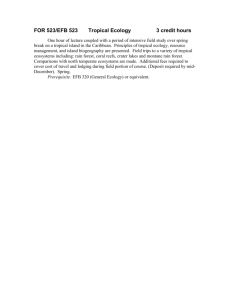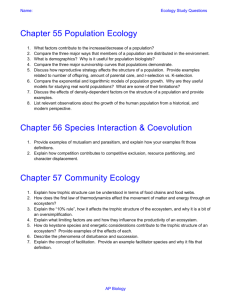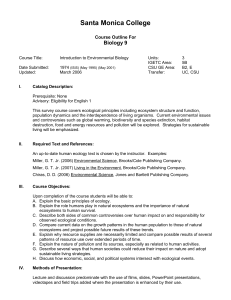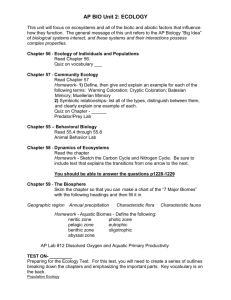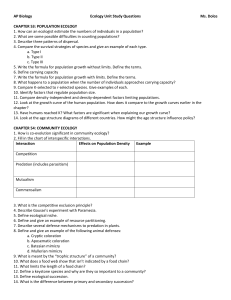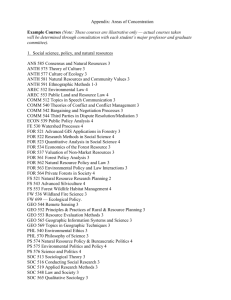451
advertisement
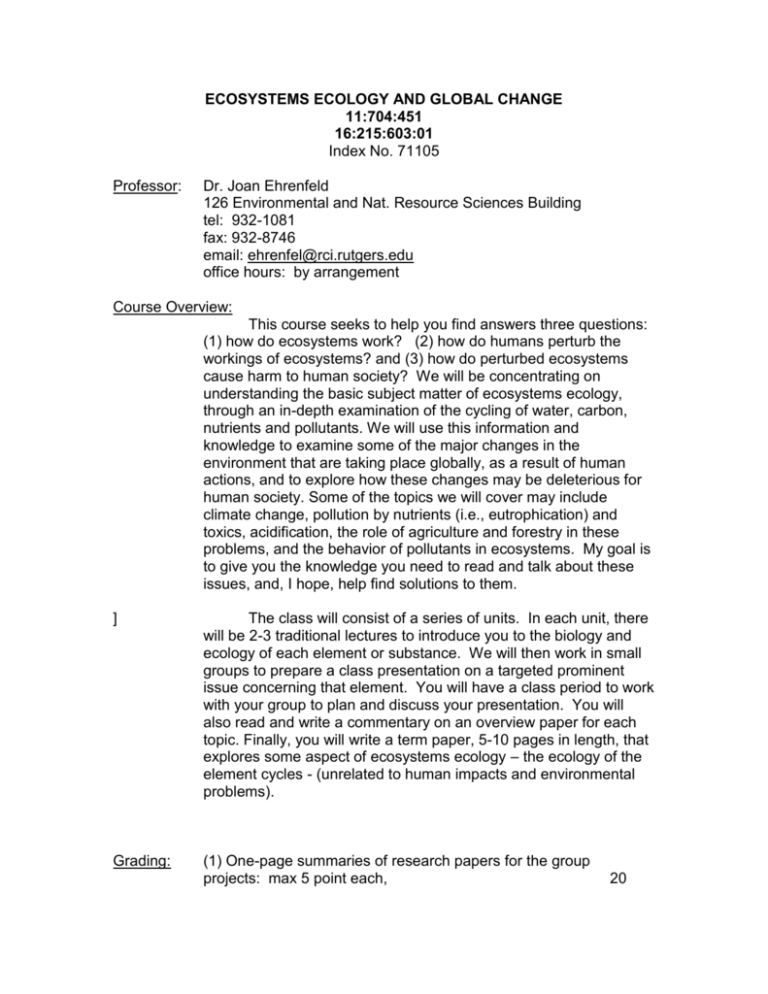
ECOSYSTEMS ECOLOGY AND GLOBAL CHANGE 11:704:451 16:215:603:01 Index No. 71105 Professor: Dr. Joan Ehrenfeld 126 Environmental and Nat. Resource Sciences Building tel: 932-1081 fax: 932-8746 email: ehrenfel@rci.rutgers.edu office hours: by arrangement Course Overview: This course seeks to help you find answers three questions: (1) how do ecosystems work? (2) how do humans perturb the workings of ecosystems? and (3) how do perturbed ecosystems cause harm to human society? We will be concentrating on understanding the basic subject matter of ecosystems ecology, through an in-depth examination of the cycling of water, carbon, nutrients and pollutants. We will use this information and knowledge to examine some of the major changes in the environment that are taking place globally, as a result of human actions, and to explore how these changes may be deleterious for human society. Some of the topics we will cover may include climate change, pollution by nutrients (i.e., eutrophication) and toxics, acidification, the role of agriculture and forestry in these problems, and the behavior of pollutants in ecosystems. My goal is to give you the knowledge you need to read and talk about these issues, and, I hope, help find solutions to them. ] The class will consist of a series of units. In each unit, there will be 2-3 traditional lectures to introduce you to the biology and ecology of each element or substance. We will then work in small groups to prepare a class presentation on a targeted prominent issue concerning that element. You will have a class period to work with your group to plan and discuss your presentation. You will also read and write a commentary on an overview paper for each topic. Finally, you will write a term paper, 5-10 pages in length, that explores some aspect of ecosystems ecology – the ecology of the element cycles - (unrelated to human impacts and environmental problems). Grading: (1) One-page summaries of research papers for the group projects: max 5 point each, 20 (2) Group grade for each project, 5 points each 20 (3) Commentary papers on assigned readings, 3 each 30 (4) Term paper, 5-10 pages 30 (5) Attendance and participation in discussions 10 (6) Extra credit – written commentaries on additional materials posted on the class website 10 One-pagers: see handout on group projects Commentary papers: For each topic, I have assigned a paper that is a review or overview of the topic, rather than a research paper. For each paper, please prepare a one-page commentary, in which you: 1. Give the full, correct citation of the paper. 2. What did you learn from this paper? 3. Briefly discuss one issue raised in the paper that you would like to see addressed at greater length, and discuss why you chose this issue (not convinced by the paper; disagree with the author; think it’s interesting or intriguing; don’t understand what the author is getting at, etc.) Term paper: For a term paper, I would like you to concentrate on some aspect of ecosystems ecology – the basic ecology of the elements and materials that I will be covering in the lectures. Chose one aspect of one cycle, and prepare a 5-10 page doubled-spaced paper on it, using the scientific literature for your source of information. Requirements: - minimum of 6 papers from the scientific literature - maximum of one website (give the URL) - maximum of one general ecology textbook. Examples of topics: controls on litter decomposition or SOM decomposition controls on NPP decomposition in anaerobic habitats soil organic matter carbon in freshwater habitats carbon in the ocean patterns of nitrification in forest ecosystems nitrogen cycling in a major biome (deserts, tropical forest, temperate grasslands, conifer or boreal forest, tundra, etc.) denitrification in aquatic environments (wetlands/lakes/estuaries/coastal waters) phosphorus cycling in a major biome Sulfur – fate in wetlands Cation cycles; Controls on evapotranspiration Geological history of the carbon cycle


